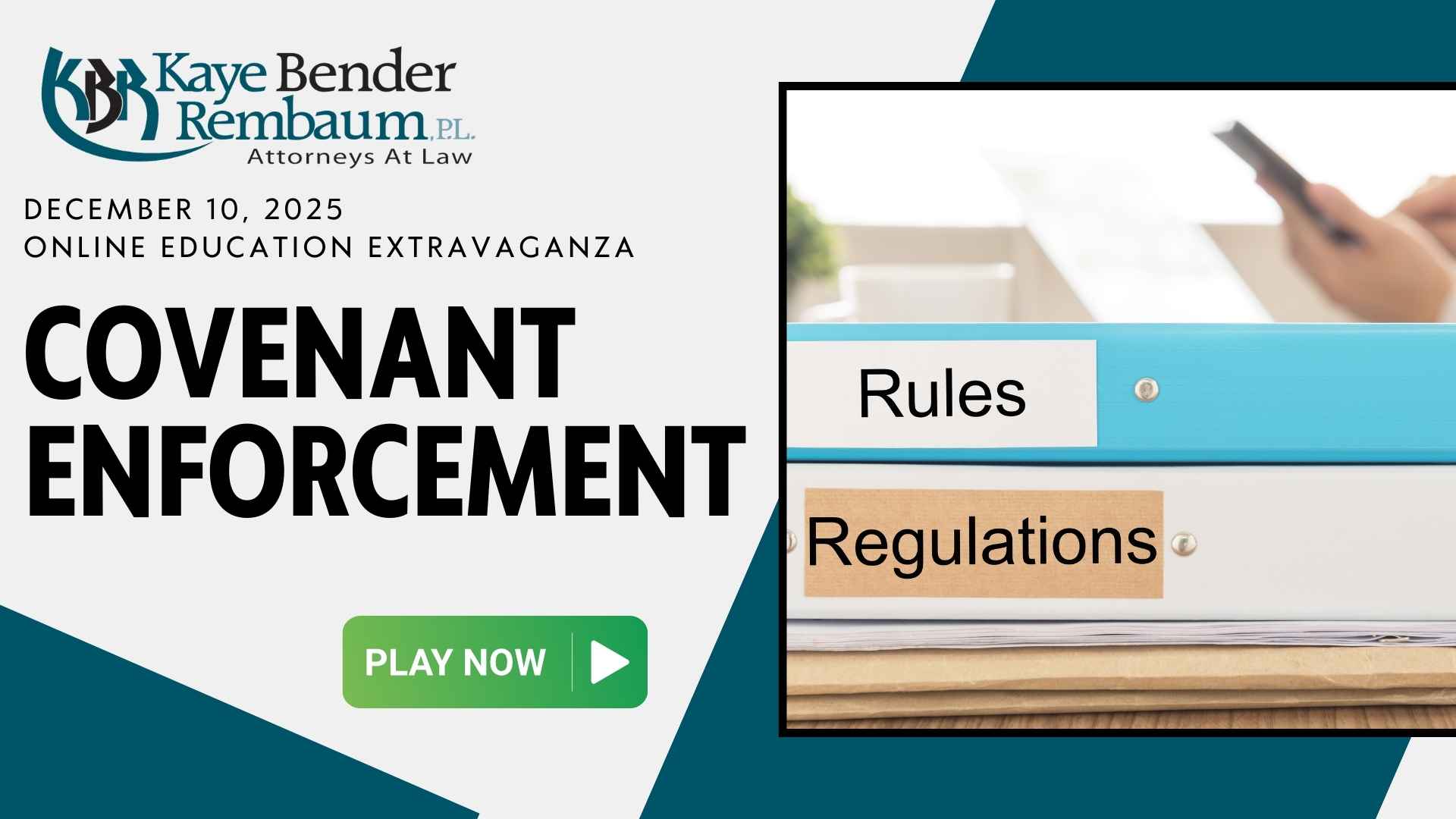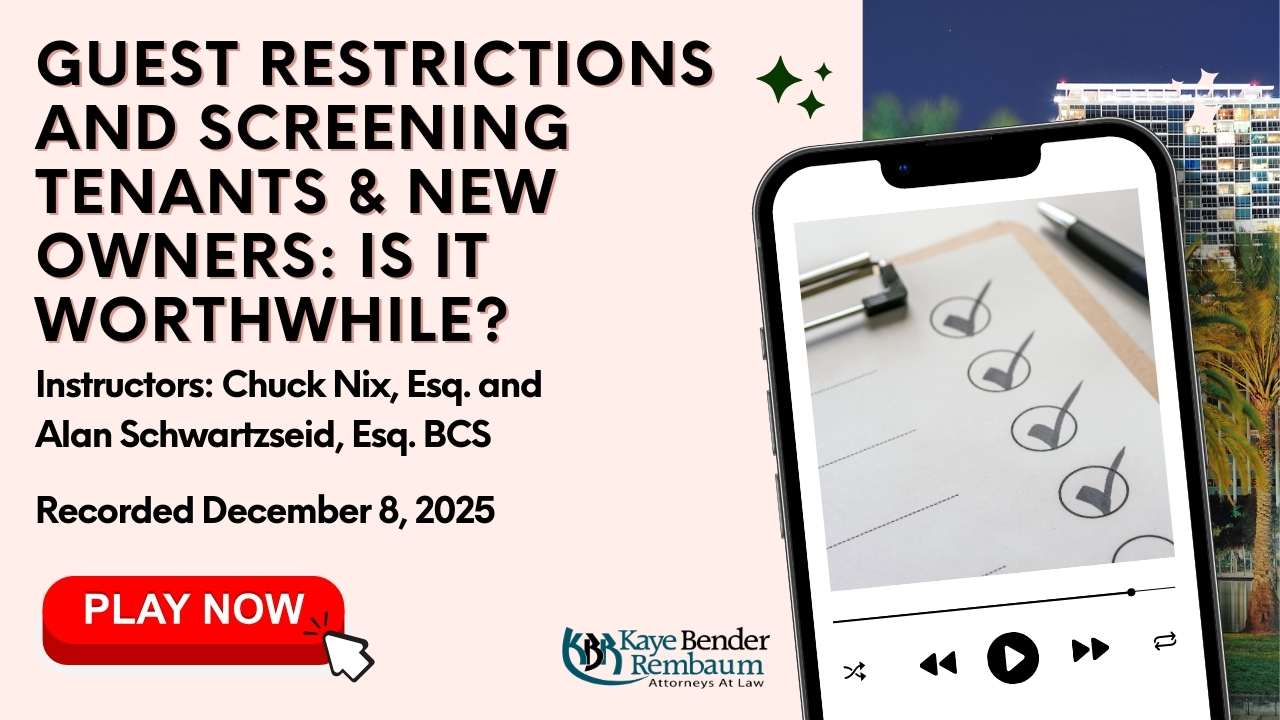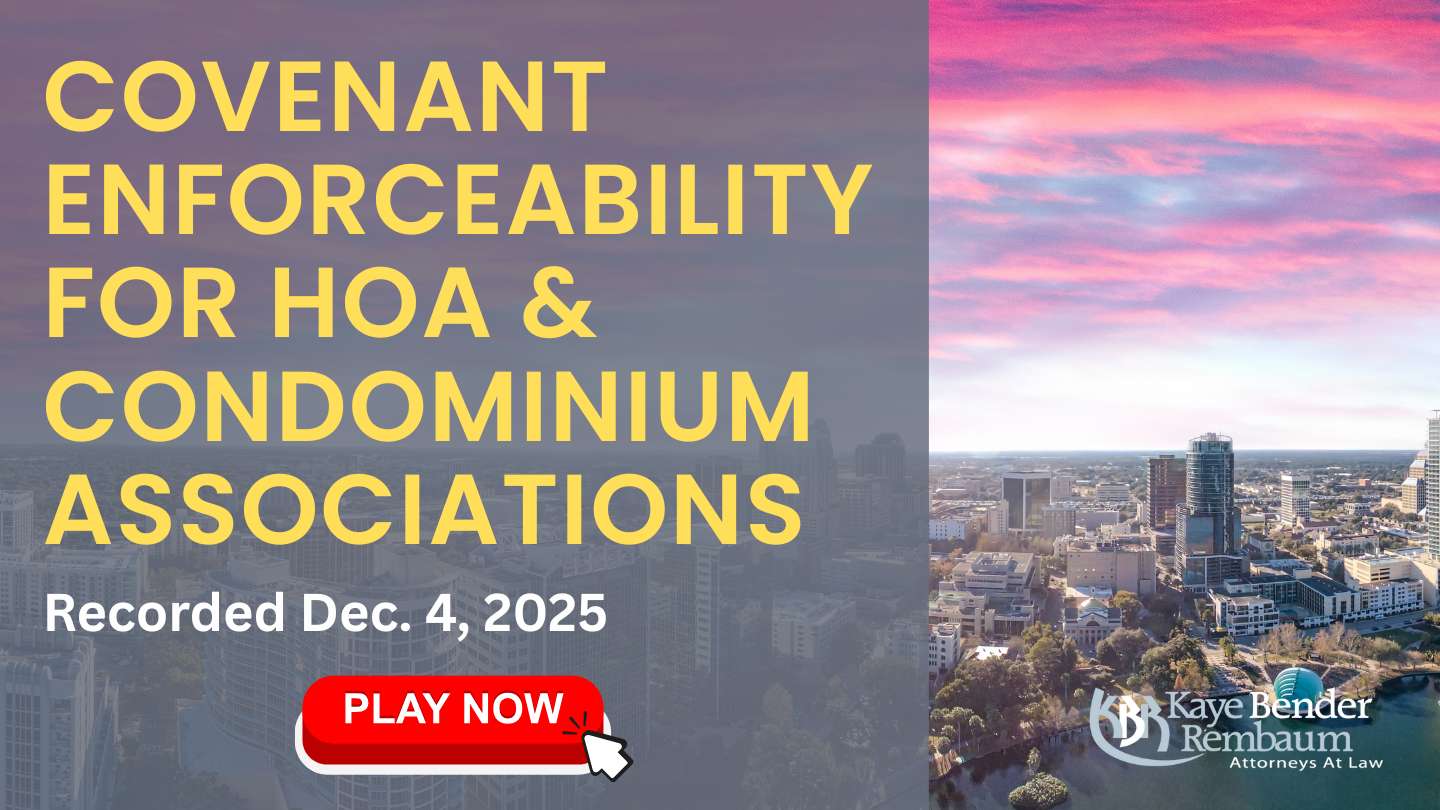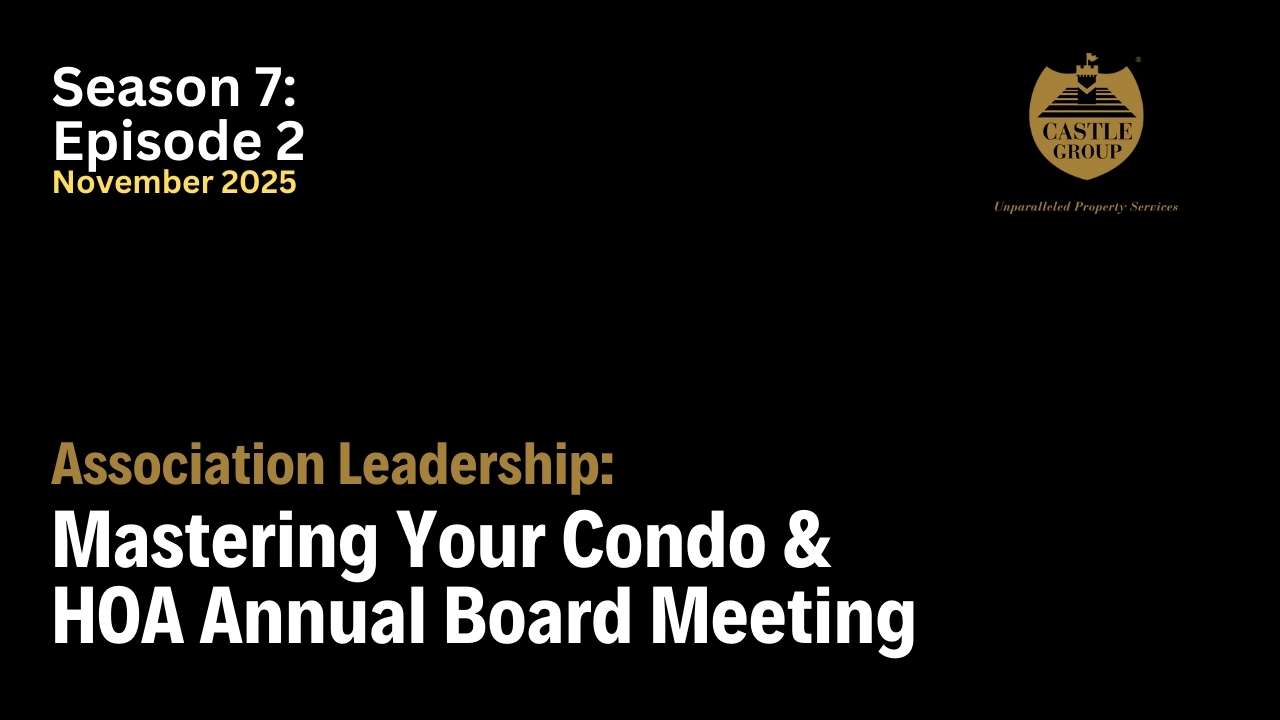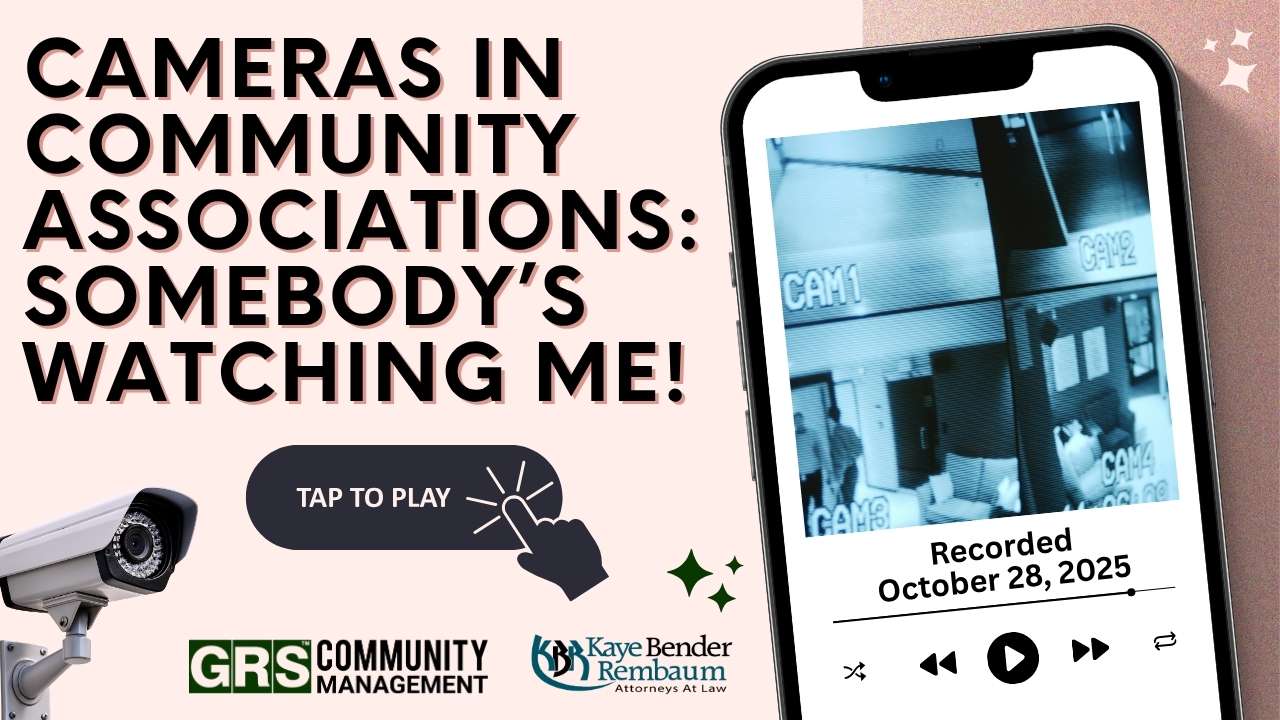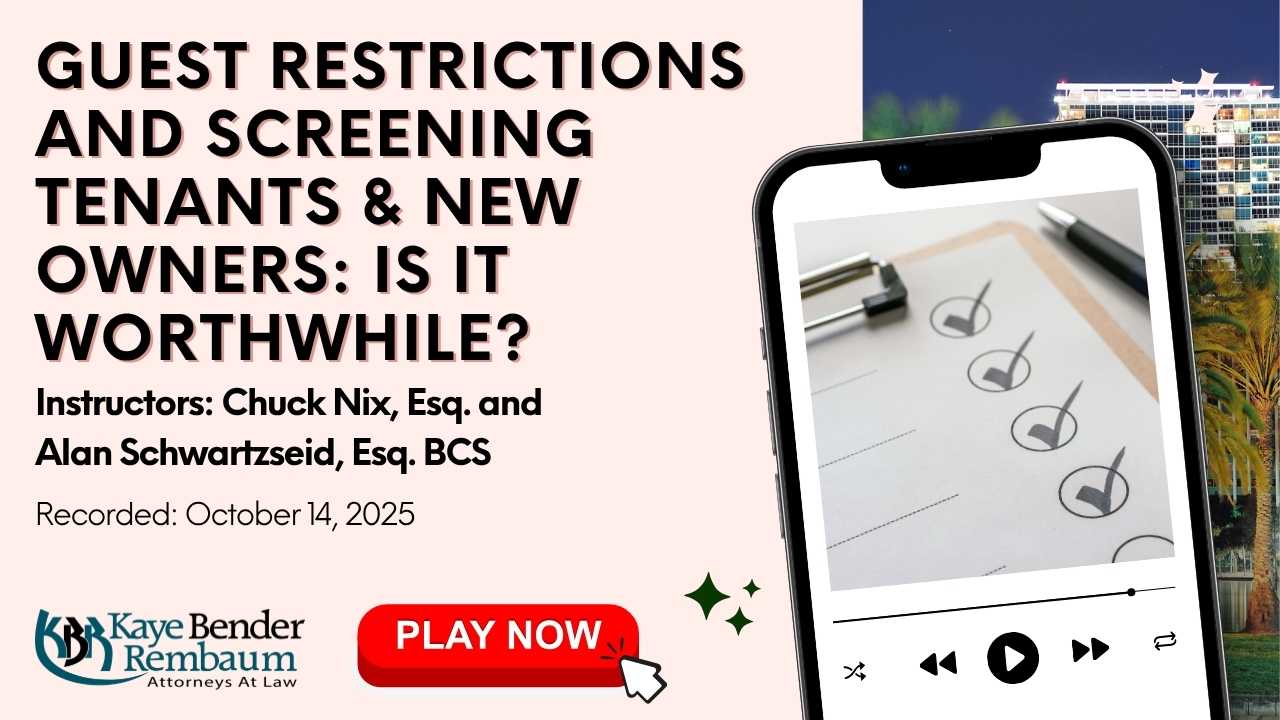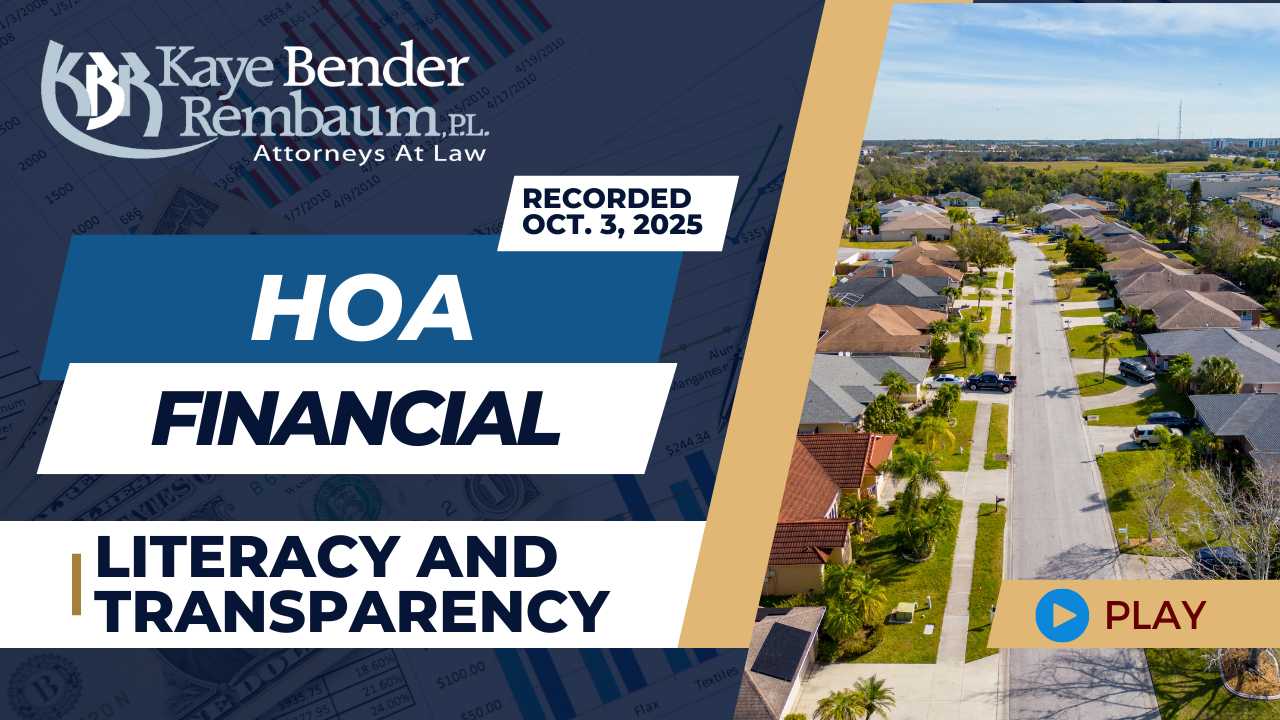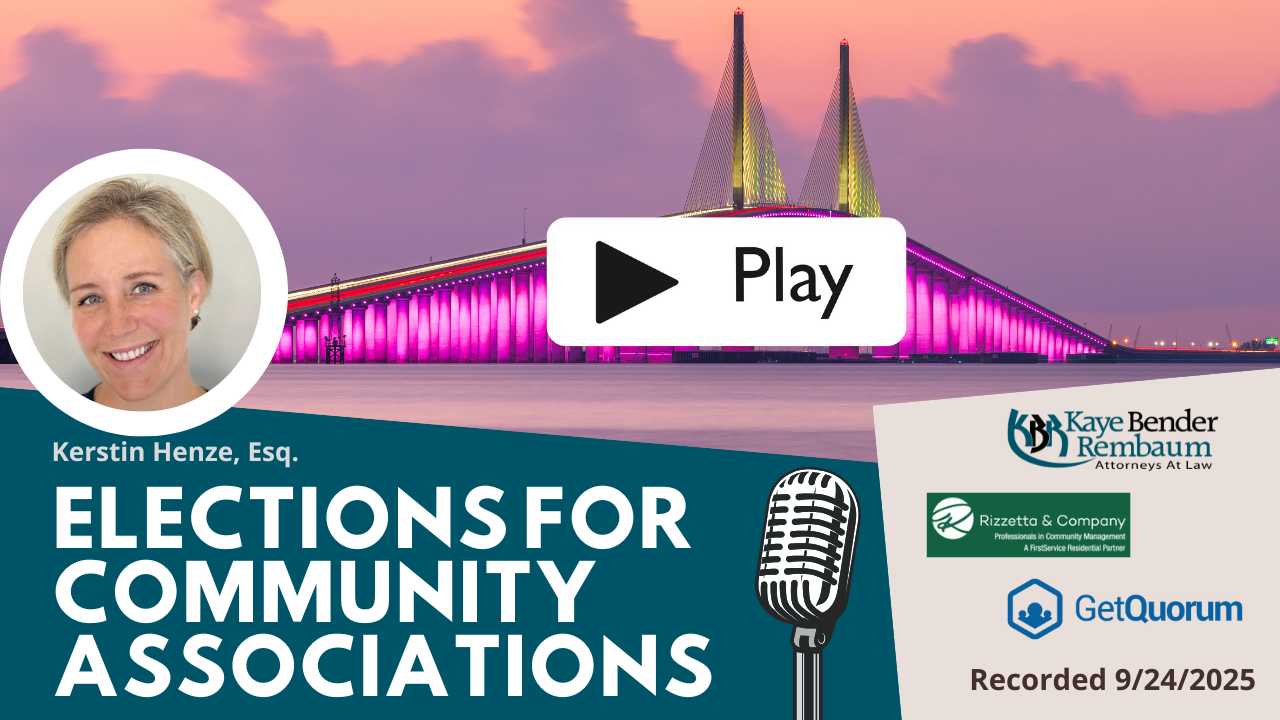*Read Before Viewing* | This recorded video WILL NOT satisfy Florida state certification requirements for Board Members, NOR will this recorded version offer CEUs for CAMS or Board Members. It is for informational purposes only and is not to be considered as legal advice. Should you have any questions, contact your association counsel.
Covenant Enforcement for Associations (with Danielle M. Brennan, Esq. BCS) | This course will provide new and experienced Community Association Managers, and Board Members, with information on the importance of timely and uniformly enforcing the covenants

